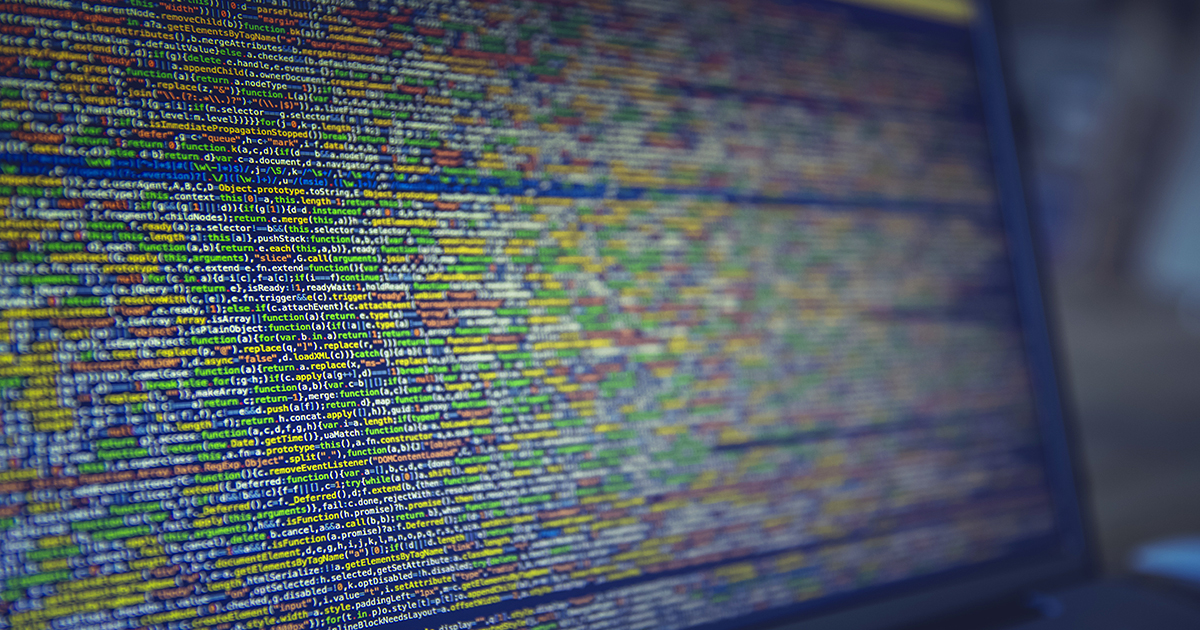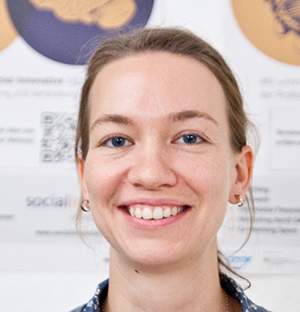A WOMAN IN TECH
★ ★ ★ ★

By Anna Fischer
It is the 21st century and the IT sector is obviously still male dominated. When I started to study computer science in 2000, female students in Germany made up about 10-15% of the student population and this number has not grown significantly since then. Personally, however, it never occurred to me that there were professions that I was closed out of for being a woman. In school, I was fascinated by maths, as were several other girls in my class. My older sister studied physics, and though I never did get any strong encouragement, neither did I get any discouragement from those around me. Looking back, I think I was lucky to have several positive role models around me, and a healthy ignorance of the expectations and stereotypes of society.
At that time, there was no programming course at my school and many great initiatives didn’t yet exist, like Girls` Day in Germany (https://www.girls-day.de/), which presents professions to girls where women are underrepresented, or Rails Girls (https://railsgirls.com/), which teaches girls and young women programming with the help of volunteers. However, my older sister got a personal computer while she was still in school (which my brother and I used mainly for playing adventure games, a genre I only recently learned was strongly influenced by Roberta Williams, a computer games pioneer and visionary), and she lent me her book on programming in Pascal shortly before I had to decide what I would like to study.
In hindsight, I think my decision to study computer science wasn’t deeply thought through, and I was not very well informed on the possibilities it would open up for me. I was (and still am) far from being a computer or technology nerd, though I love maths and science. At college the knowledge of my fellow students was intimidating, as many of them (the male students especially) seemed to have been computer hobbyists from a young age. However, in my professional career, I rarely met anyone who was the stereotype of a socio-phobic computer nerd who codes day and night, and lives on pizza, coke, and gummy bears. Most professional work today is done in teams, so social skills, good communication, and a sense of humor are essential, and it is those skills that I look for when building my project teams (which are mostly all male).
From early on I was interested in how to use technology and computers to make positive contributions to society. As a student, I spent several months in Ghana working for the German development aid agency GIZ, where I programmed a website for the Ghana Aids Commission. After my graduation as a computer scientist I didn`t find a way to follow a career path in development aid, so I started to work for the Fraunhofer Gesellschaft as a researcher. However, a few years later I was offered the opportunity to work for Fraunhofer in Portugal, researching how IT, and especially mobile phones, can be used to help people in developing countries out of poverty or to promote health in distant regions. The rapid spread and falling prices for mobile devices make them an ideal tool for providing computing power to people who otherwise could not afford a computer. One of our projects was an easy-to-use smartphone interface targeting the needs of women in developing countries. Another project was a software to detect malaria from a blood sample through a smartphone camera.
In 2012, I discovered the social entrepreneurship movement in Berlin, which has gained quite a momentum in the last years. I moved back to Berlin and co-founded Fairmondo (https://www.fairmondo.de/), an online market place promoting fair trade products, which is organised as a co-operative with now over 2000 members. Fairmondo was thought up being a model of a transparent company owned by its employees and users and putting social values first. I spent over two years co-managing the company as well as designing and building the software behind Fairmondo.
Founding Fairmondo was a great experience, but working in a start-up is also very intense and exhausting, so after two years I decided to leave. Currently I am self-employed and working for different profit and non-profit clients. My latest project is a platform for the non-profit association Initiative D21, which will launch in October to facilitate the collaboration between companies and volunteer organisations that help refugees (https://buntundverbindlich.de/). Many companies in Germany would like to contribute to refugee aid, but lack the knowledge and contacts to identify current needs. For example, maybe they would like to donate notebooks, but only if they find a group of volunteers who would use them for giving classes to refugees. The platform will bring both sides together.
After working in the IT sector for over a decade, I still see that women are underrepresented. I was interested in a recent article in the Guardian (https://www.theguardian.com/science/sifting-the-evidence/2015/oct/13/why-ada-lovelace-day-matters) which gave a list of suggestions to promote equality and diversity in science and technology. The list includes encouraging women to take risks, refusing to attend conferences without an appropriate level of female speakers, or acting as a mentor. It made me think that if every one of us would just sign up to one of the listed actions, together we could start some positive change.
I found many benefits to working in IT. The workplaces I chose were pleasant, encouraging and supportive working environments. The sector also has a high demand for skilled personnel and a shortage of that personnel, to whom they offer above-average wages. It is also highly compatible with home office and part-time work and therefore offers great opportunities for a good balance between work and family time. And a lot of different career paths are possible, just pick the one that suits you most: a classical career in a big company; research work; founding your own start-up; working in the non-profit sector; be an employee or a freelancer; work as a programmer, a team leader or a manager.
Last but not least, writing your first computer program is a very powerful, creative, and fun experience (which might get you addicted to endless nights spent programming).

Anna Fischer is a computer scientist from Berlin, Germany. In 2014 she was awarded as one of the 39 Digital Heads by the German Federal Ministry of Education and Research for promoting fair trade and responsible consumerism online. She is a member of the global Geekette community, a platform for women innovators in technology.























